Netherlands’ Solarge BV in Public-Private-Partnership with REA and InfraCorp to Launch 1GW Solar Panel Manufacturing Factory in Nigeria
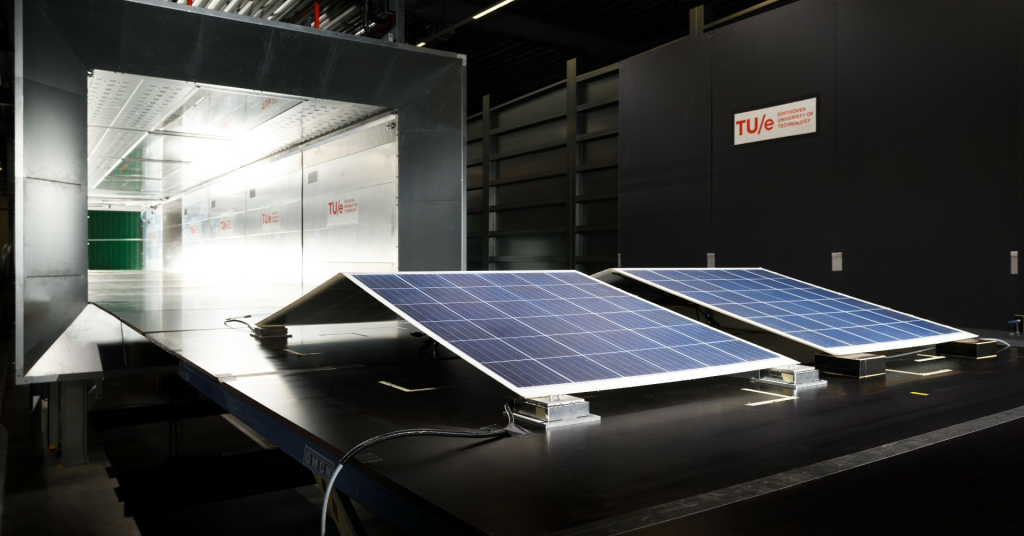
In Abuja-Nigeria, a move that could redefine Nigeria’s energy landscape ensued, Dutch renewable energy company Solarge BV has announced the launch of a 1-gigawatt (GW) solar panel manufacturing plant in Nigeria, the first of its kind in West Africa. The project, developed through a public-private partnership (PPP) deal, signed with Rural Electrification Agency (REA) and the Infrastructure Corporation of Nigeria (InfraCorp), underscores Nigeria’s determination to accelerate its energy transition, tackle electricity shortages and reduce dependence on fossil fuels.
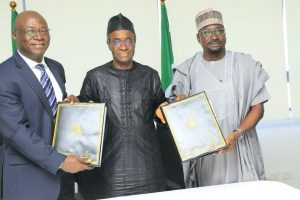
As an turning point for families and communities incoming procession in decades, millions of Nigerian families have lived with the daily struggle of unreliable power supply, relying on costly petrol or diesel generators that eat into household incomes and pollute the environment; while for the average or rich family, installations of solar power system substitutes or exit them totally off-grid.
Solarge’s new factory promises to ease this burden by producing affordable, locally made solar panels, which will enable families/communities regardless of their status, from rural villages to urban households, to gradually shift toward cleaner and more stable energy sources. This is more than just an industrial milestone. It is about giving Nigerian children the chance to study at night without the hum of a generator, families the peace of living without sound-storm, for mothers to refrigerate food safely and for small businesses to run more profitably. This PPP, is a business boost for Nigeria’s green economy.
With a production capacity of 1GW annually, the factory is set to create thousands of direct and indirect jobs, from engineers and technicians to supply chain workers. Local entrepreneurs stand to benefit as solar technology becomes cheaper and more accessible, potentially unlocking a wave of new Macro-Small-Medium-Enterprises (MSME) and Small-Medium- Enterprises powered by clean energy.
Solarge BV, known in Europe for its lightweight, fully recyclable solar panels, emphasized that the Nigerian facility would not merely be an assembly line, but a hub of innovation, integrating research and development into its operations.
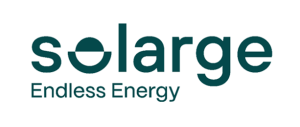
Solarge BV, like the Africa’s first battery gigafactory in Kenitra, Morocco by the Chinese partnership, sees Nigeria not only as a market but as a partner in shaping Africa’s renewable energy future. Solarge believes that manufacturing panels locally will reduce costs, cut import dependency/expenditure and build capacity within Nigeria’s workforce. Besides, it will also watchout to leverage sound governance, politics, policy and healthy sustainable public-private model to survive the establishment.
The partnership with the Nigerian government reflects a political commitment to diversify the country’s energy mix, especially at a time when international pressure is mounting for oil-dependent economies to cut emissions.
Nigeria, Africa’s most populous nation, has pledged to achieve net-zero carbon emissions by 2060. To reach that target, the country must significantly ramp up renewable energy deployment, particularly solar, which experts believe should be one of Nigeria’s most abundant resource.
The PPP model ensures that while Solarge brings technical expertise and investment, the government provides policy support, infrastructure facilitation and regulatory frameworks that guarantee a stable business environment. Some analysts annotate that this collaboration could serve as a template for other African nations seeking to balance energy access, sustainability and economic growth. Though, this position insinuates lack of information about other African countries who have already forged ahead on this stead, and are spreading their influence into neighbouring countries.
With regards human impact and social change beyond economics and politics, the launch highlights the human dimension of energy transition. Students in rural schools, farmers in off-grid communities and urban professionals struggling with high fuel costs in this era of fuel deregulation, all stand to gain from a more reliable and sustainable energy system.
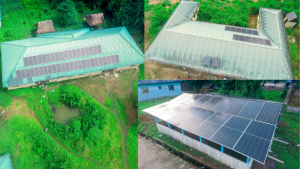
Civil society would also hail the PPP’s project as a step forward for environmental justice, pointing out that Nigerian communities have borne the brunt of oil spills, gas flaring and deforestation for decades.
Solar energy is not only just about electricity. Considerably, it’s about health, dignity, individual economy, productivity, human capacity capital development and opportunity. A chance for children to breathe cleaner air and mothers in the rural/suburb areas not seeking firewoods at long distances for their daily homefront activities.
When the manufacturing hub takes off successfully, the Solarge factory could make Nigeria an African regional hub for solar technology, exporting panels across West Africa and strengthening the continent’s bargaining power in global renewable energy markets.
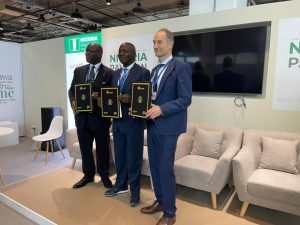
However, a balancing-caution must conduct the would-be challenges: from ensuring grid integration and financing for solar adoption, to addressing Nigeria’s broader infrastructure deficits. Yet, with both the public and private sectors aligned, optimism is rising that the factory could mark a new chapter in Nigeria’s power story where clean, reliable and affordable energy is not a luxury, but a norm.






